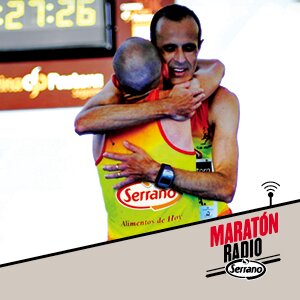Why Running Works For Sustainable Weight Loss
If you're looking for a reliable way to shed pounds and keep them off, running might just be your answer. It burns a significant number of calories, helping create that essential caloric deficit. Plus, the benefits extend beyond just weight loss—you'll also notice positive changes in your body composition. But there’s more to it than just hitting the pavement. Explore how you can make running work effectively for you.
Effectiveness of Running for Weight Loss
Running serves as an effective method for weight loss, primarily due to its ability to burn calories and enhance overall physical fitness. On average, individuals can expect to burn approximately 100 calories per mile when running. This aspect makes it a viable option for those looking to lose weight, particularly when it's combined with a caloric deficit—consuming fewer calories than the body expends.
Incorporating interval training into a running regimen may further increase calorie expenditure, potentially enhancing weight loss outcomes by 25–30% within a shorter duration of exercise.
Furthermore, consistent running can lead to favorable changes in body composition over time, contributing to weight management.
Another important consideration is the afterburn effect, or excess post-exercise oxygen consumption (EPOC), which allows for continued calorie burning after the workout has ended.
Running provides additional health benefits, including improved cardiovascular health and increased muscular endurance, making it a well-rounded form of exercise for those aiming to manage their weight.
Caloric Burn and Types of Running
Different running styles can influence caloric expenditure, which is important for those aiming for weight loss. Moderate running can result in an approximate burn of 372 calories over a 30-minute duration. Generally, running burns about 100 calories per mile.
High-intensity interval training (HIIT) can increase caloric burn by 25-30% compared to steady-state running. Furthermore, running on an incline can further enhance calorie expenditure, potentially increasing it by 30-50%.
The phenomenon known as excess post-exercise oxygen consumption (EPOC) associated with high-intensity workouts may contribute to additional calorie burning even after the exercise session has concluded.
Structuring Your Running Routine
To achieve sustainable weight loss through running, it's important to structure your routine appropriately. For beginners, a good starting point is to run three times a week for 20 to 30 minutes. As fitness improves, individuals can gradually increase the frequency and duration of their runs.
Intermediate runners might aim for 4 to 5 sessions per week, each lasting 30 to 45 minutes. Advanced runners could benefit from a routine that includes 5 to 6 runs per week, potentially incorporating high-intensity interval training to enhance calorie burning.
It is also essential to track progress metrics, such as distance, pace, and body composition changes, to assess the effectiveness of the running routine.
In conjunction with an exercise regimen focused on weight loss, maintaining a balanced diet is critical for optimizing results and supporting long-term weight management.
Supporting Your Running Routine With Proper Nutrition
While focusing on a running routine is critical, proper nutrition is also vital for sustainable weight loss and improved performance. Consuming snacks that are rich in carbohydrates and protein prior to running can enhance energy levels, thereby optimizing performance during the run.
After completing a run, it's important to support muscle recovery by including lean protein sources and healthy carbohydrates, which aid in replenishing glycogen stores in the muscles.
Hydration is essential and shouldn't be overlooked; adequate water intake and electrolyte restoration are necessary after workouts, particularly in hotter climates where fluid loss can be significant.
Monitoring Progress and Common Missteps
Monitoring progress in running is important for achieving sustainable weight loss and improving performance. It's advisable to track metrics such as distance, pace, and duration to assess fitness improvements objectively.
Emphasizing changes in body composition rather than solely relying on scale weight can provide a more accurate measure of progress. Additionally, monitoring energy levels is critical, as fluctuations may indicate either positive advancements in fitness or potential risks of overtraining.
One common error among runners is misjudging the intensity of their workouts. This miscalculation can result in inadequate calorie expenditure or an increased risk of injuries associated with overexertion.
Therefore, it's crucial to find a balance between running and nutrition; neglecting dietary needs can impede weight loss efforts and diminish overall running performance. Attention to these factors is vital for achieving long-term goals in running and weight management.
Safety Tips for New Runners
As you begin your running journey, it's important to prioritize safety to both enjoy the activity and achieve your fitness goals. For new runners, it's advisable to gradually increase distance and pace to minimize the risk of injury. Maintaining proper running form and wearing appropriate footwear are critical for providing the necessary support and reducing the likelihood of strain.
Hydration is another key aspect to consider; it's important to drink water before, during, and after runs to maintain optimal hydration levels. Incorporating rest days into your training routine allows for muscle recovery, which is essential for preventing overuse injuries.
Additionally, it's vital to be attentive to your body's signals. If you experience any pain or discomfort that intensifies, it's prudent to cease running and seek appropriate medical advice if necessary.
Optimizing Your Results With Professional Assistance
If you're aiming to achieve your weight loss goals through running, obtaining professional assistance can prove beneficial. A certified trainer can develop customized workout plans that are suitable to your fitness level and running routine, which may enhance your progress while also reducing the risk of injuries.
Moreover, guidance on nutrition is crucial for recovery and energy maintenance, which can improve the efficiency of weight loss efforts.
Structured programs frequently include elements of strength training and cross-training, adopting a comprehensive approach that can help to increase caloric expenditure.
Regular assessments not only help in keeping workouts diverse but also serve to maintain motivation and adherence, contributing to long-term success in your weight loss endeavors.
It's important to consider that the integration of professional guidance may provide a more structured framework for individuals pursuing weight loss through running.
The Role of Running in Long-Term Weight Management
Running serves an important function in long-term weight management by effectively burning calories and improving physical fitness. On average, an individual may burn around 100 calories per mile run, which contributes to creating a calorie deficit that's vital for sustainable weight loss.
Regular running plays a role in preserving muscle mass while facilitating a reduction in body fat, both of which are essential for achieving and maintaining a healthy body composition.
In addition, incorporating high-intensity running can increase metabolic rate and produce an "afterburn effect," known as excess post-exercise oxygen consumption (EPOC). This phenomenon enables the body to continue burning calories for a period following the workout, potentially lasting up to 48 hours, depending on the intensity and duration of the exercise.
Running is also effective in decreasing visceral fat, the type of fat stored within the abdominal cavity, which is associated with various health risks.
Therefore, consistent running not only supports weight loss efforts but also contributes to long-term health outcomes, promoting an overall state of fitness.
Conclusion
In conclusion, running is a powerful tool for achieving sustainable weight loss. By burning calories effectively and enhancing your body composition, you can reach your goals faster when you combine it with a balanced routine and good nutrition. Remember to monitor your progress and avoid common pitfalls, and don’t hesitate to seek professional guidance if needed. With commitment and the right approach, you'll set yourself up for long-term success and a healthier lifestyle.
| Redacción Director: Redactor-Jefe: Redactor: Director Comercial: Diseño: |
Colaboradores Área de Entrenamiento: Jerónimo Bravo y Miguel Ángel Rabanal. Área de Material: Fernando Chacón y Kike de Diego Álvarez. Área de Salud: Enrique García Torralba y Doctor López Chicharro. Área de Nutrición: Viviana Loria Kohen. Área de Carreras: Ignacio Mansilla. Área de Trail: Miguel Caselles, Juan Antonio Alegre y Juanma Agejas. |










